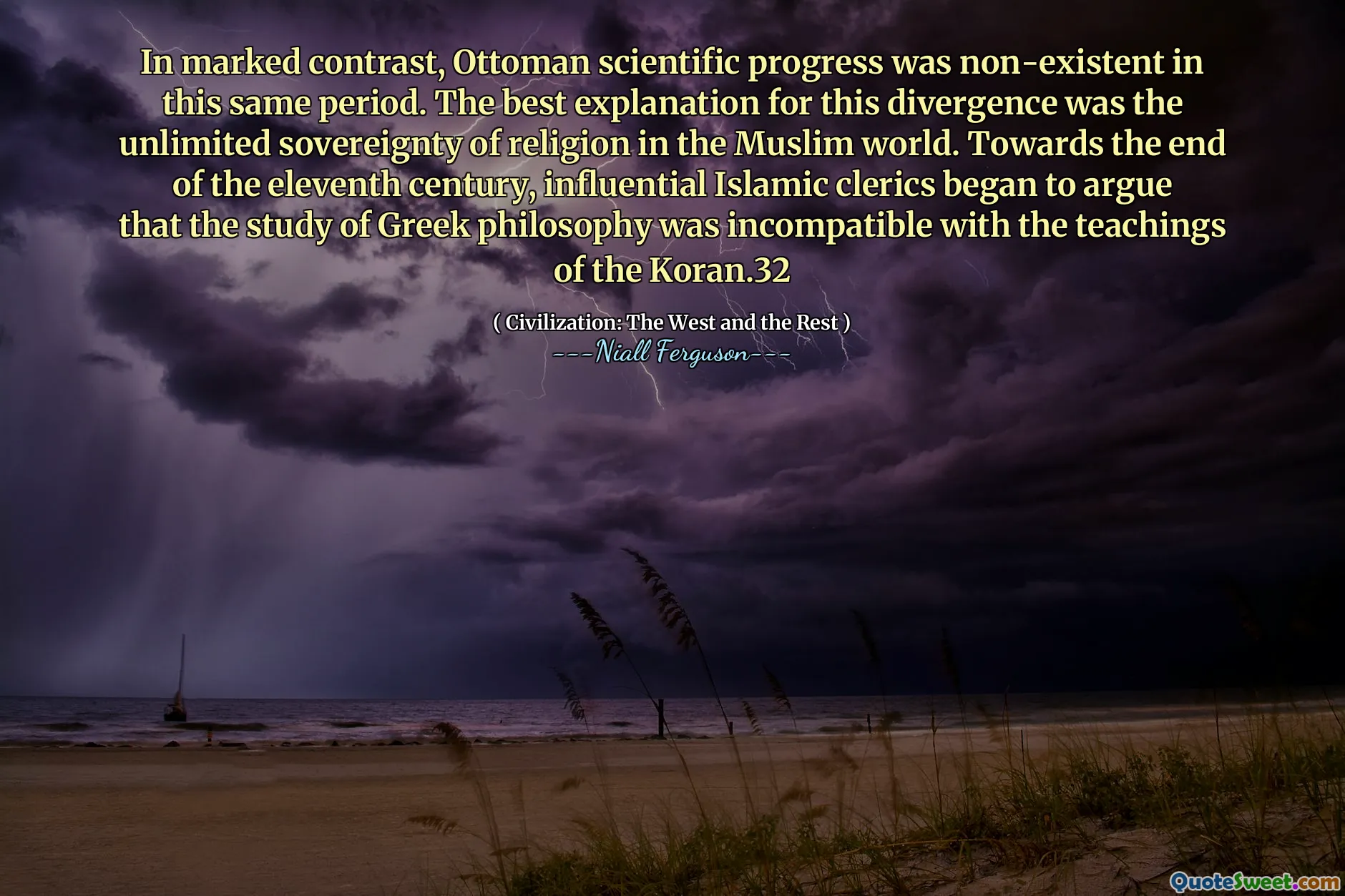
In marked contrast, Ottoman scientific progress was non-existent in this same period. The best explanation for this divergence was the unlimited sovereignty of religion in the Muslim world. Towards the end of the eleventh century, influential Islamic clerics began to argue that the study of Greek philosophy was incompatible with the teachings of the Koran.32
During the period of significant scientific advancement in the West, the Ottoman Empire saw little to no progress in the same field. This stark contrast can largely be attributed to the dominant role of religious authority within the Muslim world. As the eleventh century approached its conclusion, influential religious leaders began to assert that engaging with Greek philosophy conflicted with Islamic teachings, particularly those found in the Koran.
This rejection of philosophical inquiry stunted scientific development in the Ottoman Empire, establishing a cultural milieu where religious interpretation took precedence over empirical exploration. Consequently, while the West was forging ahead in science and innovation, the Ottoman society became increasingly resistant to ideas that might challenge its religious foundations, resulting in a stagnation of intellectual growth.











